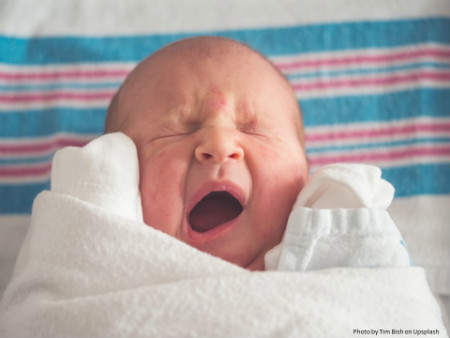At this point in time, we have considerable information regarding the reproductive safety of antidepressants, particularly the selective serotonin reuptake inhibitors or SSRIs. Most of this information relates to the incidence of congenital malformations or birth defects in children exposed to these medications. Other studies have examined the effects of the medications on newborn adaptation and behavior. Our information is, however, much more limited when it comes to understanding the long term effects of prenatal antidepressant exposure on the developing fetal brain.
Smaller prospective studies have observed no significant differences in IQ, temperament, behavior, reactivity, mood, distractibility, or activity level between antidepressant-exposed and non-exposed children followed up to 7 years of age. Other studies have explored the relationship between prenatal antidepressant exposure and autism spectrum disorders, which may be diagnosed in children younger than a year of age.
It is considerably more difficult to identify any neurobehavioral or psychiatric symptoms in medication-exposed children when they emerge later on in life. Certain anxiety disorders — phobias and separation anxiety disorder — are seen most commonly in younger children, with the median onset in the range of 7 and 14 years; mood disorders typically have a much later age of onset, with most cases emerging between 25 and 45 years of age.
A recent study published in the Journal of the American Academy of Child and Adolescent Psychiatry asks whether prenatal exposure to antidepressant is associated with increased risk for psychiatric illness in children up to the age of 14. This study used national register data in Finland between the years 1996 and 2010. Pregnant women and their offspring were categorized into 4 groups: SSRI exposure (n = 15,729); exposure to psychiatric illness but no antidepressants (n = 9,651); exposure to SSRIs before but not during pregnancy (n = 7,980); and no exposure to antidepressants or psychiatric illness (n = 31,394).
The researchers investigated the incidence of diagnoses of depression, anxiety, autism spectrum disorder (ASD), and attention-deficit/hyperactivity disorder (ADHD) in the offspring in the four different groups from birth to 14 years of age.
The incidence of depression among offspring exposed prenatally to SSRIs was 8.2% (95% CI = 3.1–13.3%) by age 14.9 years, compared to 1.9% (95% CI = 0.9–2.9%) in the group with exposure to psychiatric illness but no medication (adjusted hazard ratio [HR] = 1.78; 95% CI = 1.12–2.82; p = .02) and to 2.8% (95% CI = 1.4–4.3%) in the group with SSRI exposure prior to pregnancy (HR = 1.84; 95% CI = 1.14–2.97; p = .01).
Rates of anxiety, ASD, and ADHD diagnoses were more common in SSRI-exposed children as compared to unexposed children; however, the rates of these disorders were comparable to rates in offspring of mothers with a psychiatric disorder but no medication exposure during pregnancy. This finding suggests that genetic and/or environmental factors — not medication exposure — are responsible for the higher prevalence of these disorders in the exposed group.
The most obvious strength of this study is its size — nearly 16000 SSRI-exposed children. This study also attempted to control for genetic and environmental factors by including comparison groups of women with psychiatric illness but no antidepressant exposure.
There are, however, important limitations of this study. Without randomization of the subjects, we cannot assume that the women who continue taking SSRIs during pregnancy are identical to the women who choose to stop or avoid taking SSRIs during pregnancy. Based on our clinical and research experiences, it is likely that the women who choose to maintain treatment during pregnancy have more recurrent or severe illness. They may also have inadequately or partially treated symptoms. While the researchers attempt to identify women with psychiatric illness during pregnancy, these women are identified using diagnostic codes noted in the medical record and no instruments are used to assess severity or duration of illness.
While this study raises concerns, we must put it into a larger context. Untreated depression in the mother is associated with worse pregnancy outcomes.There is also evidence that what happens in utero, while the fetus is developing, may predispose a child to certain illnesses later on in life. It has been hypothesized that dysregulation of the maternal hypothalamic-pituitary-adrenal (HPA) axis — as a result of exposure to stressful life events or the experience of anxiety or depressive symptoms during pregnancy – may lead to long-standing alterations in the fetal HPA axis, making the child more susceptible to depression or anxiety as an adult.
Several years ago, the Avon Longitudinal Study of Parents and Children (ALSPAC), a large prospective study which enrolls mothers during pregnancy and follows their children from birth onward, observed that antenatal exposure to maternal depression increases the risk of adolescent depression. A total of 3374 children were included in the analysis. The proportion of women with EPDS scores suggestive of major depression (mean scores of >12 at 2 time points during pregnancy) was 11.6%. Compared to women with no depression, women with antenatal depression were 1.47-fold more likely to have a child with depression at the age of 18 (95% CI, 1.0-2.2; P=.047). In addition, there appeared to be a dose effect, where greater severity of antenatal depression was associated with a higher risk of depression in the child. Taking both of these studies into consideration, it is still not clear if the increased prevalence of depression in the children can be attributed to exposure to the medication or to the underlying psychiatric illness.
Although this study raises some concerns, there is also good news. There was no observed association between prenatal SSRI exposure and risk for autism spectrum disorders, ADHD, or anxiety disorders.
Ruta Nonacs, MD PhD
Malm H, et al. Gestational Exposure to Selective Serotonin Reuptake Inhibitors and Offspring Psychiatric Disorders: A National Register-Based Study. J Am Acad Child Adolesc Psychiatry. 2016; 55(5):359–366.










